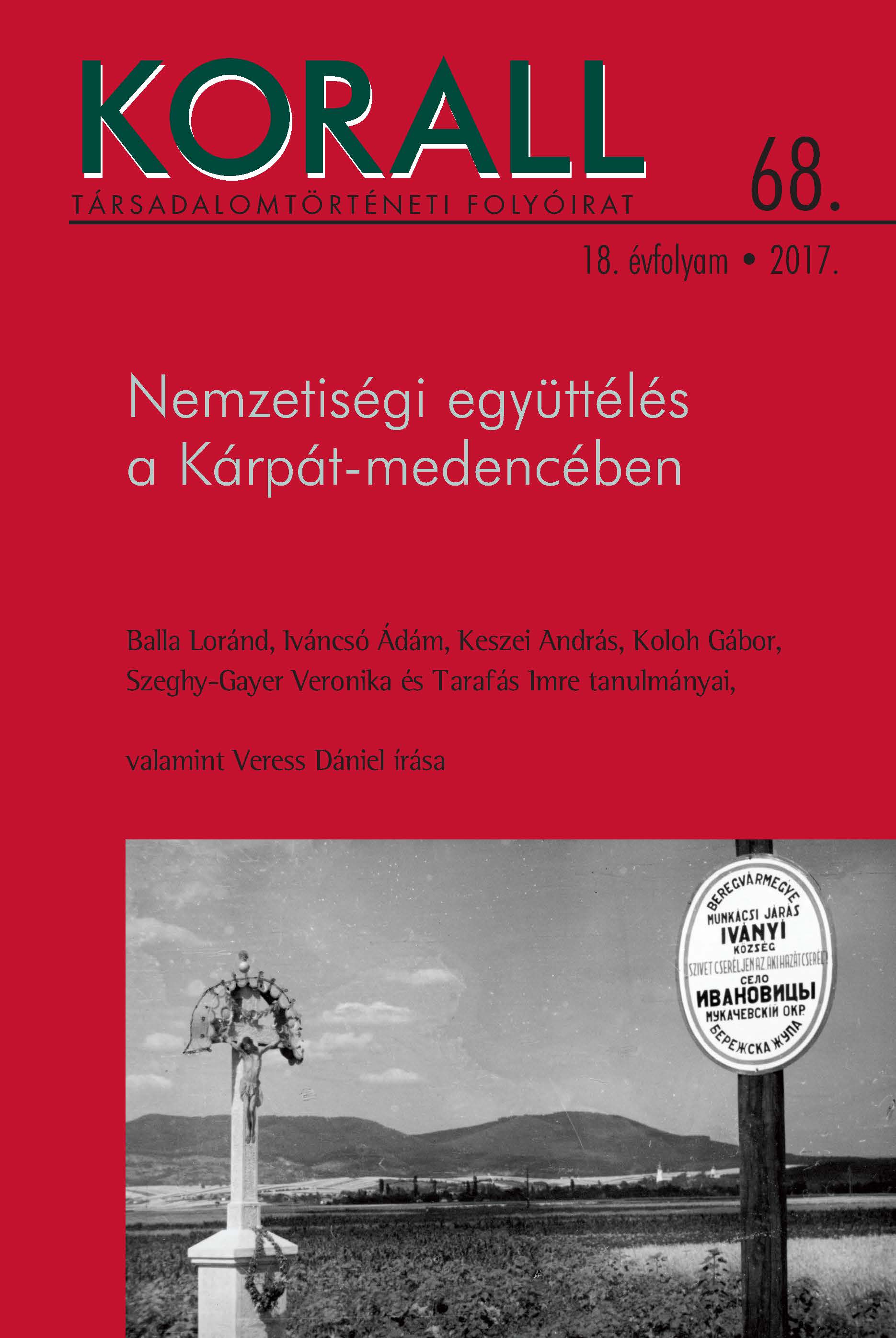Nép, etnikum, felekezet
People, Ethnicity, Religion
Classifying Hungarian Jewry in the First Half of the Nineteenth Century
Author(s): András KeszeiSubject(s): Jewish studies, Ethnohistory, Social history, 19th Century
Published by: KORALL Társadalomtörténeti Egyesület
Keywords: history;social history;19 th century;Hungary;jewish emancipation;
Summary/Abstract: The biggest challenge in classifying social groups is finding a durable definition. Besides the constantly changing scholarly approaches, this is primarily caused by the changeability of the social groups themselves. To resolve this double uncertainty, the present study proposes to use dynamic nominalism which places the emphasis on the changing realities of social phenomena and groups, as well as the factors that bring about these changes. Accordingly, a group may be presented in historiography as it is formulated by the members of the given group and outsiders, their authorities, institutions, professionals and intellectuals, often in response to each other’s definitions. Expressing the changes of the background, intellectual environment and aims of the actors and their definition, the groups are portrayed in motion. Based on this premise, the study traces the definitions of the Hungarian Jewry between the 1780s and 1848: this heterogeneous religious group, fragmented by internal conflict and interests, formed its own identity in response to the challenges posed by the external attitudes, expectations, the legal environment and major political programmes. The diversity of responses, ranging between accepting and rejecting urbanisation and Magyarisation, resulted in vast differences between the self-definitions and behaviours of specific actors, as well as in a social reality constructed as a group. In the case of the Jews, their national, ethnic and religious character, as well as the possibility to separate these aspects, was an important issue for the contemporaries. Between the last decades of the eighteenth century and 1848, the changes of economic, social and intellectual atmosphere alleviated the isolation and created a situation that demanded new strategies of self-definition from the Hungarian Jews.
Journal: Korall - Társadalomtörténeti folyóirat
- Issue Year: 2017
- Issue No: 68
- Page Range: 5-26
- Page Count: 22
- Language: Hungarian

